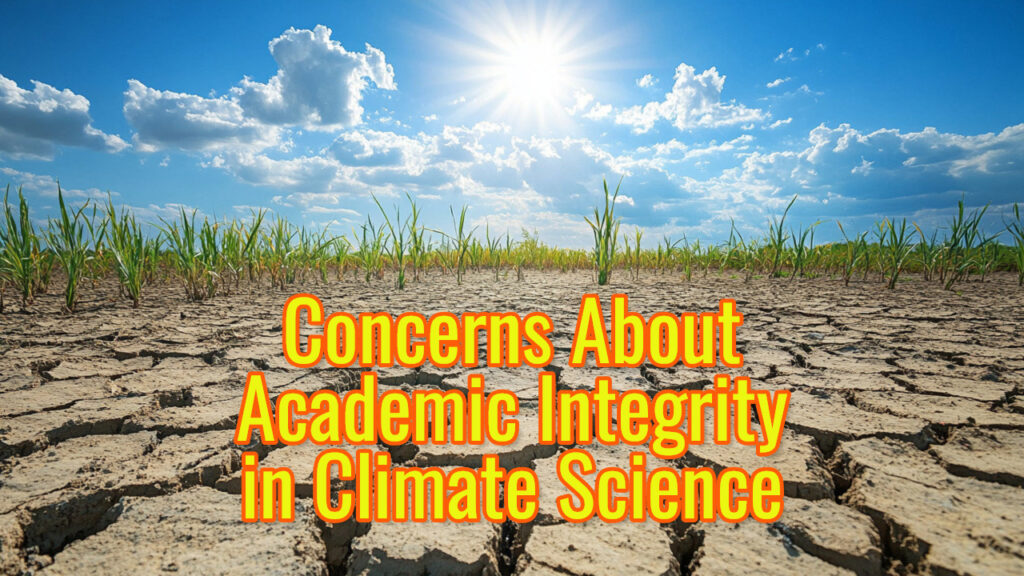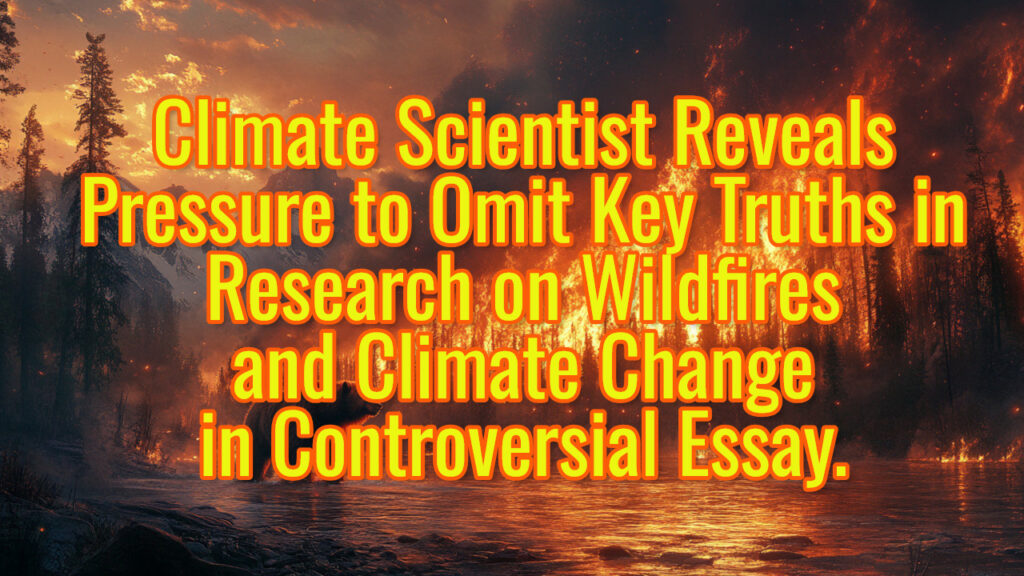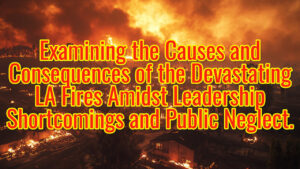Introduction to Patrick T. Brown’s Revelations
Patrick T. Brown, a climate scientist with a PhD in Earth and Climate Sciences, has recently attracted considerable attention with his confessional essay published in the Free Press. In it, he admits to omitting crucial truths to align with the prevailing narrative in his research on climate change, particularly regarding its role in extreme wildfire events. His candidness raises significant questions about the integrity and direction of climate science today.

The Pressure of Publication
Brown’s essay reveals a critical insight into the pressure faced by researchers in the climate science community. He asserts that prestigious journals, such as Nature, favor studies that support the dominant narrative of climate change as a pervasive and catastrophic force. This bias, he argues, compels scientists to focus solely on climate-related factors in their research, often at the expense of a more nuanced understanding that includes other contributing variables to phenomena like wildfires.
Consequences of Compromised Integrity
The consequences of this pressure are profound. Brown acknowledges that by adhering to the formula expected by high-profile journals, he sacrificed the opportunity to contribute valuable knowledge to society. His experience illustrates a systemic issue where researchers may feel compelled to conform to a narrative that aligns with institutional expectations rather than pursuing the objective scientific inquiry that the field demands.

The Call for Reform
Brown’s departure from academia to work at the Breakthrough Institute underscores a crucial turning point for climate science. He argues that significant reform is necessary for the field to regain its credibility and integrity. This reform must address the biases in publication practices prioritizing sensational narratives over comprehensive scientific exploration.
The Role of Adaptation Measures
In his essay, Brown emphasizes the importance of practical adaptation measures, such as improved infrastructure and forest management, often overlooked in favor of policies that reduce greenhouse gas emissions. He contends that a broader perspective on climate resilience is needed, one that integrates various strategies rather than focusing solely on emissions reduction.
Conclusion
Patrick T. Brown’s revelations serve as a wake-up call for the climate science community, highlighting the need for transparency and honesty in research. His call for reform challenges the status quo, advocating for a more balanced and comprehensive approach to understanding climate change and its myriad impacts on our environment. The ongoing discourse surrounding his findings may provide an opportunity for a much-needed reset in climate science, fostering a more inclusive and robust dialogue on this pressing global issue.
Key Insights
Overview of Patrick T. Brown’s Revelations
- Patrick T. Brown, a climate scientist with a PhD from Duke University, published an essay revealing that he omitted critical information in his climate research to meet publication standards.
- His paper, published in the peer-reviewed journal Nature, focused solely on climate change’s impacts on wildfires, neglecting other significant factors.
- Brown’s motivations for adhering to this narrative stem from the pressure of academic success and the desire for recognition in prestigious journals.
Concerns About Academic Integrity in Climate Science
- Brown argues that leading scientific journals favor studies that support specific narratives regarding climate change, often at the expense of comprehensive scientific understanding.
- He experienced rejection from top journals when attempting to incorporate broader perspectives, leading him to compromise the integrity of his research.
- The situation highlights a potential corruption within academic publishing, where the pursuit of consensus may overshadow the pursuit of truth.

Implications for Climate Policy and Public Perception
- Brown emphasizes the need for adaptation strategies (e.g., improved infrastructure and better forest management) rather than solely relying on emission reduction policies to combat climate change.
- His revelations suggest that the dominant narrative in climate science may not fully encompass the complexity of environmental issues, which could misinform public policy decisions.
- The call for a reset in climate science advocates for a more balanced approach that includes diverse factors influencing climate effects.
Nature’s Response and the Future of Climate Research
- In defense of its editorial practices, Nature accused Brown of poor research practices despite having published his work, indicating a defensive stance amid growing scrutiny.
- This controversy raises questions about the credibility of climate science and the potential loss of talented researchers who prioritize integrity over conformity.
- The ongoing debate may lead to significant reforms in climate science and academia, emphasizing the importance of honest discourse and comprehensive research methodologies.
Thanks For Reading
Steven G Smith






More Stories
Debunking Antarctic Sea Ice Myths: Analyzing Current Data vs. Past Predictions and Media Claims by Tony Heller.
Understanding Climate Change Through Geology: Insights from Ian Plimer’s “Climate Change: The Facts 2025”
Los Angeles Wildfires: Poor Management and Radical Left Wing Politics Blamed for City’s Vulnerability and Devastation.